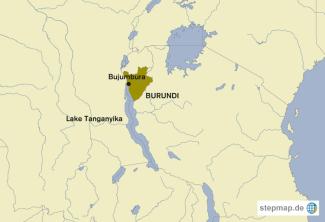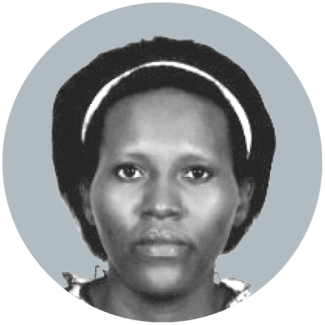Burundi-China cooperation
A beautiful friendship

But the king, who ruled from 1680 to 1709, was not the only one to be thanked. The new palace was built and financed by China, as part of its extensive cooperation with Burundi. At the inauguration ceremony, President Nkurunziza expressed pride in this “privileged and credible” partnership.
That partnership is broad and multifaceted. For example, construction of the presidential palace followed the building and equipping of a teacher training college and a vocational technical school. The Confucius Institute, established at the University of Burundi in 2012, spreads the Chinese language and culture in the country.
The Chinese presence in Burundi is visible in trade and infrastructure as well as in education and social services. Chinese funds built roads throughout the country and a 15 megawatt Ruzibazi hydroelectric power station in Rumonge Province. In health care, Chinese doctors are a notable presence in hospitals in the provinces of Bujumbura Mairie, Gitega and Bubanza.
China has cooperated with Burundi since the 1960s but increased its aid markedly since 2015. With diplomatic support at the United Nations and financial and technical support on the ground in Burundi, China has sought to displace the European Union as Burundi’s main ally.
Until 2015, the European Union was Burundi’s primary technical and financial partner, financing 52% of the country’s budget. The funding was made under the Cotonou Agreement, which requires Burundi to adhere to principles such as respect for human rights and good governance.
The relationship changed after the ruling party chose Pierre Nkurunziza as its presidential candidate in April 2015. The EU found some of the party’s policies out of compliance with the agreement and initiated resolutions against Burundi in the UN. The EU also began to freeze its funding of Burundi.
In response, Burundi’s ruling party organised demonstrations in the streets of Bujumbura, Burundi’s largest city and main port, to protest the EU’s actions. Burundi also sought support from China and Russia, which used their veto power in the UN Security Council to quash the EU’s initiatives.
Further, in June 2019, during the China-Africa summit, Chinese President Xi Jinping promised to finance Burundi’s 10-year (2018-2027) development plan with 20,000 billion Burundi francs (about € 9.5 billion). Joseph Butore, Vice President of Burundi who headed the Burundian delegation, expressed his gratitude for the Chinese aid.
Economic ties between the two countries continue to strengthen. For example, China buys nearly 90% of Burundi’s rare-earth exports and uses those precious metals to manufacture mobile phones and many other electronic devices, among other goods.
The economic partnership benefits both sides, particularly as some of the rare-earth metals become scarce. As China’s presence in Burundi becomes increasingly visible, this East African country can be expected to turn increasingly to China as its main financial, economic and diplomatic partner.
Mireille Kanyange is a journalist and reporter for Radio Isanganiro in Burundi.
mika.kanyange@gmail.com








